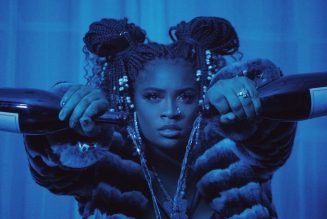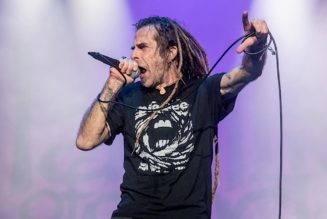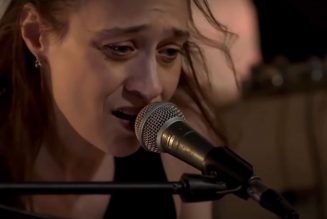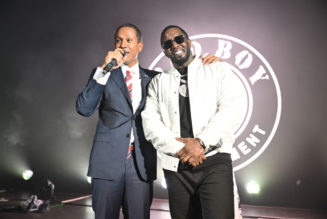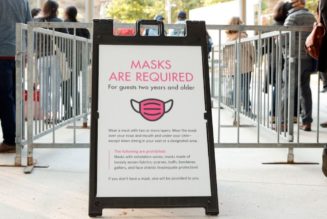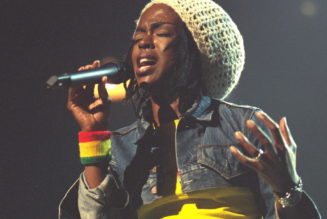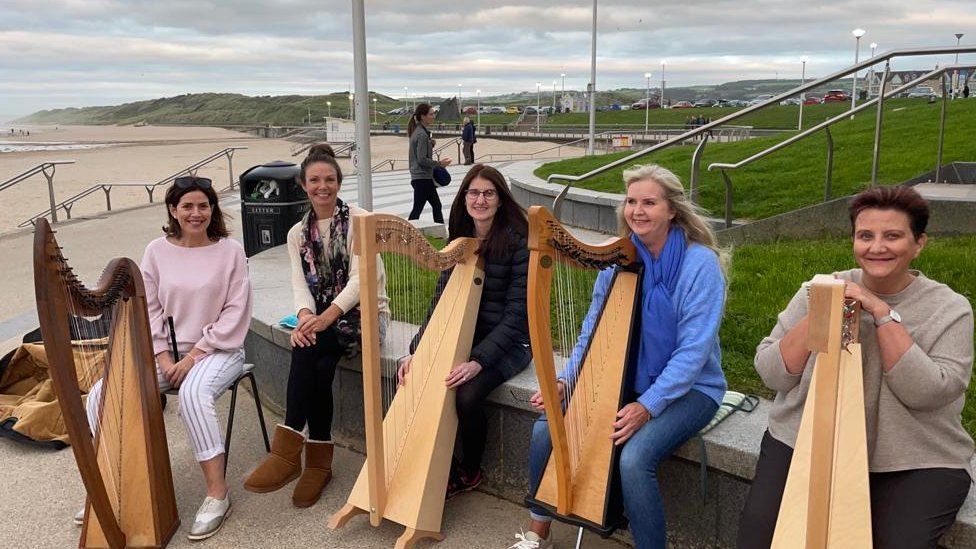
Most people have dreams or aspirations of picking up a musical instrument but for many it remains a bucket list item that is never ticked off.
The idea of lessons and grades, that traditional route of learning music, can be off-putting.
Previous failed attempts and strict music teachers in a person’s youth may also play a role in a failed musical journey.
But there are groups across Northern Ireland that are throwing away the sheet music, giving many would-be musicians the chance to pick up and play instruments just for the fun of it.
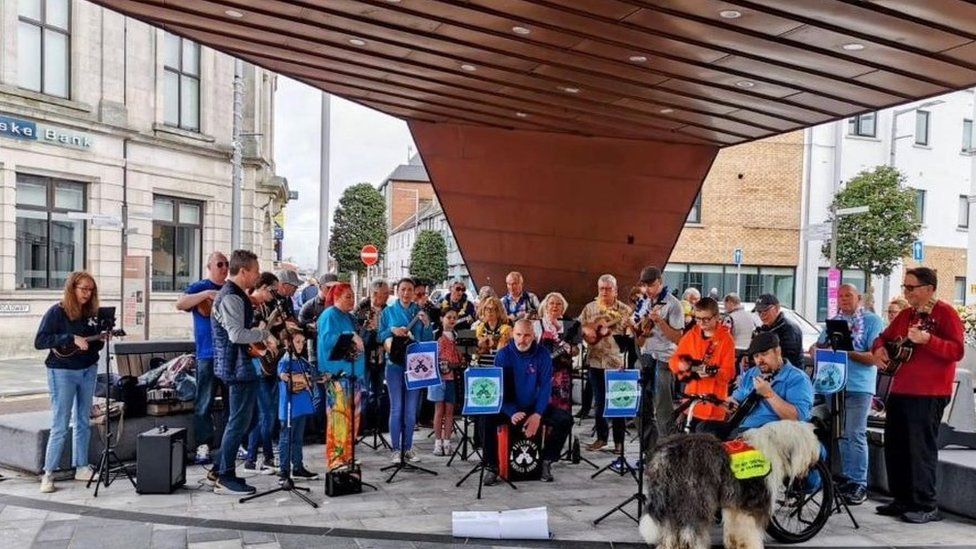
Tara Faulkner
The Ballymena Ukulele Group – known as the Bugs – was set up in 2022 through the Living Rooms project by the County Antrim town’s Methodist church.
It aimed to help improve the mental health of people who may have felt isolated, vulnerable or voiceless.
There from the start was Tara Faulkner, who says her expectations were low to begin with.
“We thought there would be six or seven on the first night but instead we had 16 people who have never touched a ukulele,” says Tara.
Most of those who attend don’t want formal lessons and simply want to “strum and sing”, she explains.
“We have lent people ukuleles and they sit next to someone who is further along and learn off them, using chord charts.
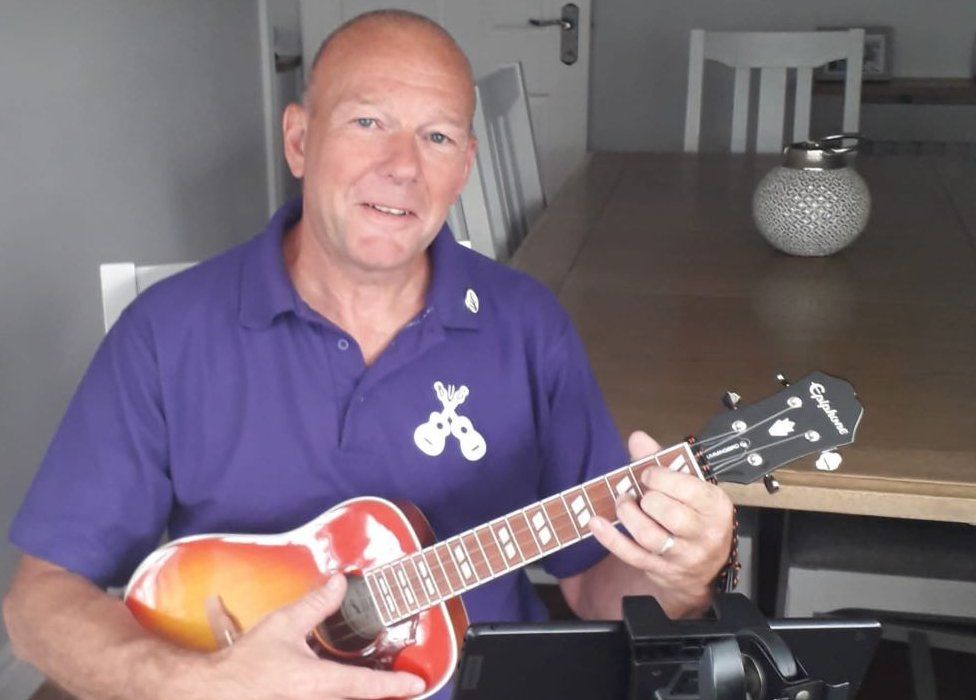
Derek Cunningham
Derek Cunningham’s journey to learning the ukulele started last year with a visit to see his sister in Peterborough in England.
“She has been playing the guitar since she was 17. She has her dining room set up as a music room with all sorts of instruments on the wall,” says Derek.
“I mentioned about the group, she encouraged me to give it a go and taught me a few chords playing along with her and I really enjoyed it.”
‘Me and strings didn’t get along’
Derek thought that was the end but just days after arriving home he found a brown box containing the instrument on his doorstep.
“I rang up my sister, she just said: ‘Well, now you have no excuse!'”
He played the concert flute when he was younger but, in his words, believed that “me and strings just didn’t get along”.
“My sister tried to teach me guitar before but it just didn’t work – I didn’t have the fingers for it but it just felt different in the group,” he says.
“We all go at our own speed, playing the chords that we know – it’s nothing serious which is far from the classical, rigid background I knew.”
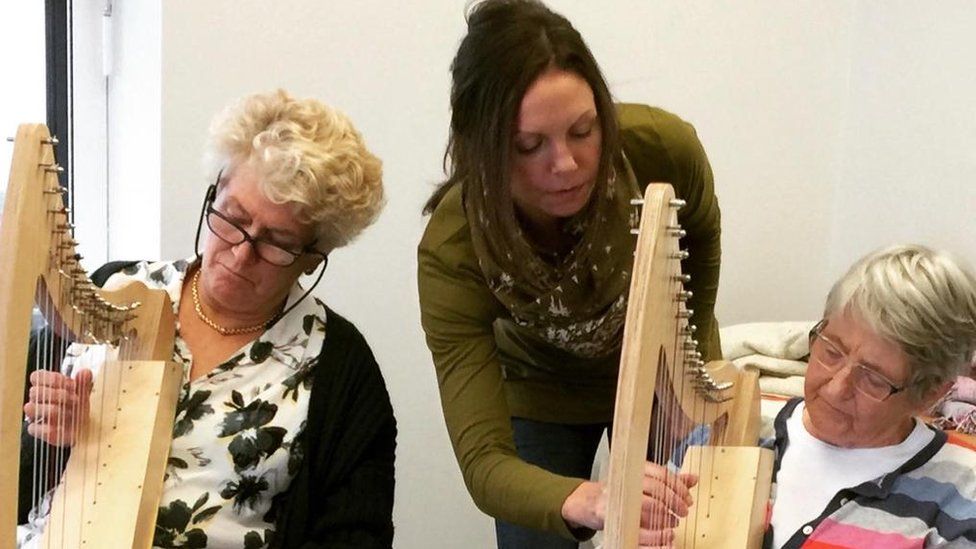
Katy Bustard
Causeway Harp School is based in Portballintrae on the north coast and is led by Katy Bustard.
Although classically trained, Ms Bustard enjoys teaching harp in the traditional Irish aural style.
That means pupils don’t need to have experience of reading musical notation as tunes are learnt by ear.
“I find a lot of people have some kind of musical trauma, often with a grumpy piano teacher and just think they can’t do it,” says Katy.
“It is a lot easier than many people think – the harp is quite a forgiving instrument and it is easy to make a pleasing sound.”
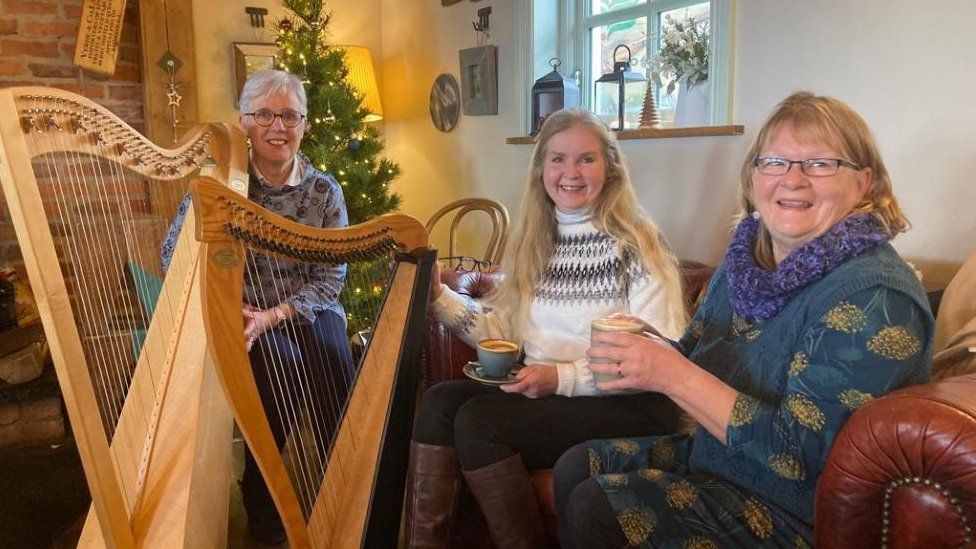
Katy Bustard
For Ailish MacFarlane, the only instrument she wanted to learn was the harp.
“When I went to school the music teacher was only interested if you had an instrument and my family could never afford a harp,” she says.
Ailish tried to learn through lessons later in life but found it too difficult.
“Katy’s way of teaching is relaxed and easy using an ABC method, making something which seems confusing very simple.
“I never thought I would be able to play a tune but I have.”
Ailish can now play a song on a harp just from listening to a tune, given a bit of time.
She says small lap harps also make the instrument more accessible and affordable for beginners.
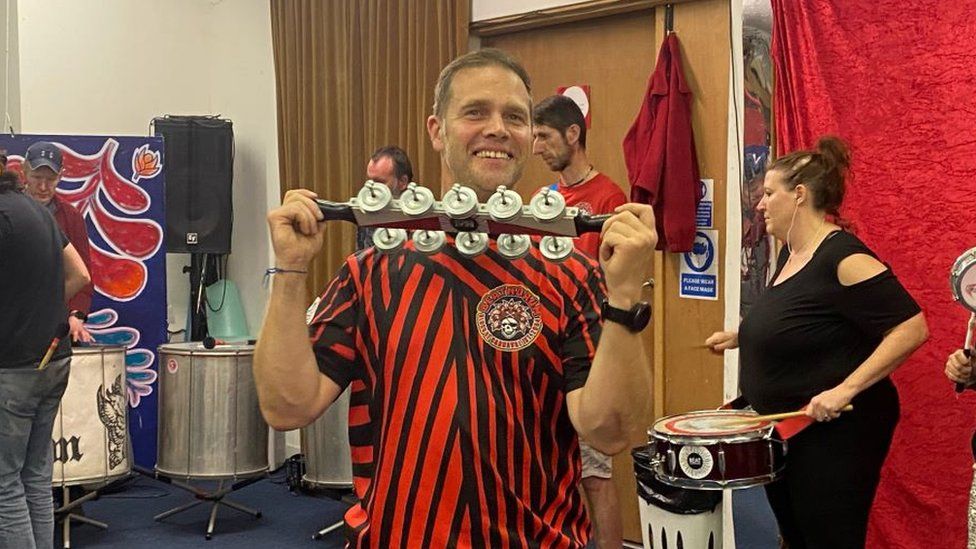
In Belfast, BeatnDrum Samba Band is a community music project run by Beat Carnival, an art organisation that is celebrating its 30th year.
The band was started by Matt Vernon in January 2004 after he saw samba live for the first time at Glastonbury Festival.
“I started searching for a samba band and ended up coming to Beat Carnival and asking them if they could help me set up one,” he says.
“I was a landscape gardener I had no experience of music really, other than being quite a percussive child.”
Matt was not to know it would become his full-time job, taking him to festivals throughout Europe and even as far away as Brazil.
“It is amazing to have these people who come in timid at first and then they are out in daft costumes playing at festivals.”
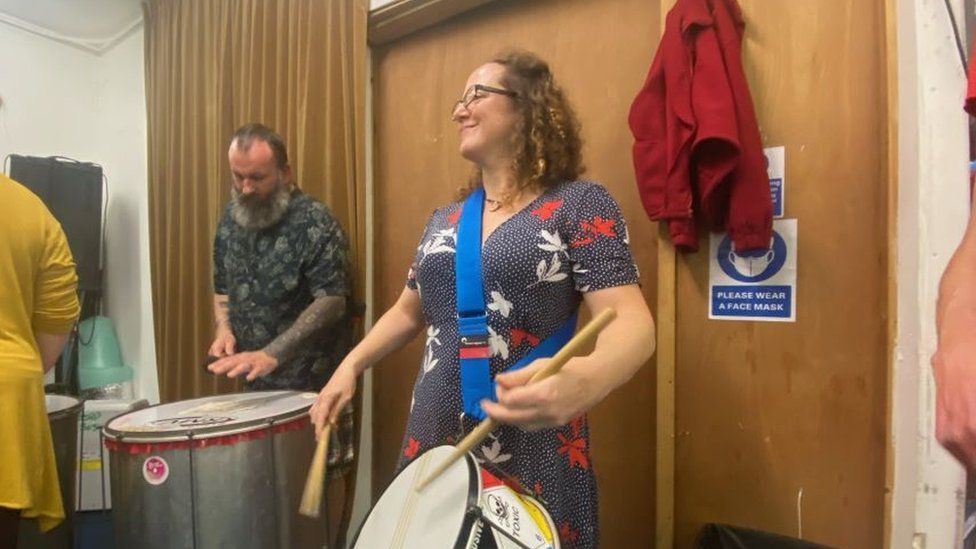
Vanessa Hasson joined the band two years ago after getting an adult autism diagnosis.
“It has just been a really great way to meet people, it really just broke sown that barrier, she says.
“It is great that there is no pressure. I would say to anyone thinking of joining to be brave – if I can do it anyone can.”
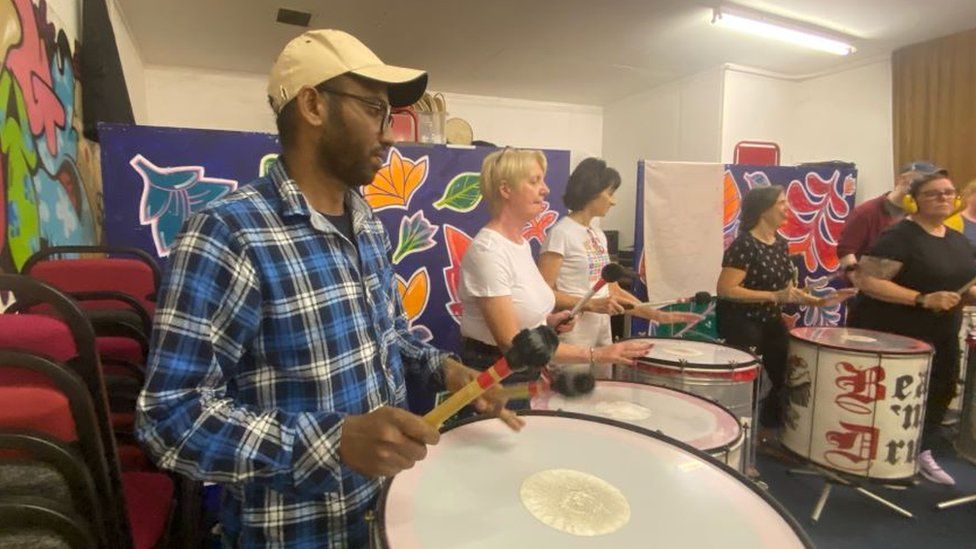
Dilli Padmanaban joined one-and-a-half years ago when he was looking for a way of learning music without strict structure.
“I thought I would give it a try and I have just really enjoyed it,” he smiles.
“You learn by just feeling the music – you feel part of the group and all the teaching is so flexible.”


